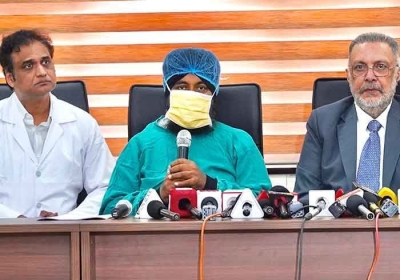
Diplomacy ramps up as war clouds form over Ukraine
Global Diplomacy Works to Avoid Russia-NATO Collision Over Ukraine
With war clouds forming over Ukraine, international diplomacy ramps up on Monday, with the French and Russian presidents meeting in Moscow and the German chancellor visiting the White House to meet with US President Joe Biden.
The foreign ministers of Germany, Czech Republic, Slovakia, and Austria were also expected in Kyiv on Monday, despite grim US warnings that Moscow had stepped up preparations for a massive incursion into Ukraine.
The Kremlin has amassed 110,000 troops along the border with its pro-Western neighbour, according to US officials, but intelligence assessments have yet to establish whether President Vladimir Putin has decided to invade.
They claim that by mid-February, Russia will have amassed a large enough force (about 150,000 men) to launch a full-scale invasion.
According to the officials, such a force would be capable of capturing Kyiv, Ukraine's capital, in less than 48 hours, in an onslaught that would kill up to 50,000 civilians, 25,000 Ukrainian soldiers, and 10,000 Russian troops, as well as triggering a refugee flood of up to five million people, mostly into Poland.
Aside from the potential human cost, Ukraine is concerned about further economic harm to its already ailing economy.
If Russia attacks Ukraine, it may suffer retaliation over the Nord Stream 2 project, which is expected to quadruple natural gas supplies from Russia to Germany, with Berlin threatening to halt construction.
Russia is seeking assurances from NATO that Ukraine would not join the organisation, as well as the withdrawal of NATO forces from eastern European member states.
Moscow has denied any plans to invade Ukraine, while Kyiv's presidential advisor has stated that the possibilities of a diplomatic solution remain "significantly stronger than the possibility of further escalation."
Ukraine's Foreign Minister Dmytro Kuleba attempted to defuse tensions on Twitter, saying: "Don't believe the doomsday prophecies. Different capitals have different situations, but Ukraine is prepared for whatever comes its way."
President Emmanuel Macron of France, which now holds the rotating presidency of the European Union, will travel to Moscow on Monday and Kyiv on Tuesday to help de-escalate the issue.
He is expected to push through a blocked peace proposal for eastern Ukraine's festering conflict with Russian-backed separatists.
Macron's travel will be a political risk for him, as he faces re-election in April.
German Chancellor Olaf Scholz will also meet with Biden in Washington on Monday.
In response to Russia's army buildup, Biden has offered 3,000 American troops to buttress NATO's eastern flank, with the first contingent expected to arrive in Poland on Sunday.
However, according to US National Security Advisor Jake Sullivan, Biden "is not sending soldiers to start or fight a war with Russia in Ukraine."
He stated, "We have sent military to Europe to defend NATO territory."
Scholz said on Sunday that Berlin was ready to send additional troops to the Baltics, in addition to the 500 troops now stationed in Lithuania as part of a NATO operation.
His foreign minister, Annalena Baerbock, will be in Kyiv for a two-day meeting with her Czech, Slovak, and Austrian counterparts while he is in Washington.
Scholtz will meet with Putin and Ukrainian President Volodymyr Zelensky in Moscow and Kyiv next week.





